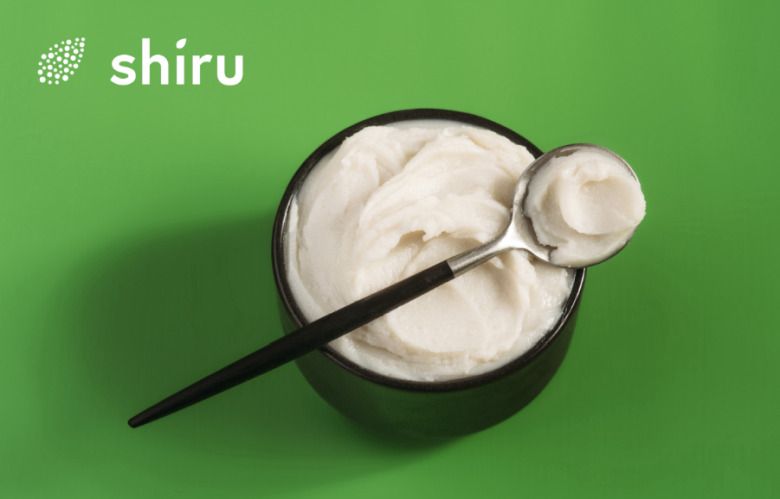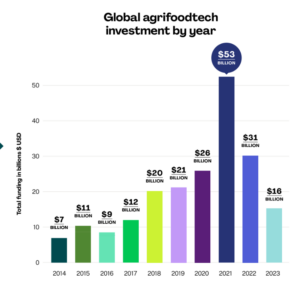California-based startup Shiru is launching a first-of-its-kind discovery platform and marketplace for proteins, enabling companies in multiple industries to harness its AI and machine learning capabilities to identify and test proteins from high-intensity sweeteners to emulsifiers.
Via a simple web interface, ProteinDiscovery.ai lets users search a database of 33 million+ molecules by protein sequence, functional use, and successful expression (how efficiently the protein might be expressed in microbes via precision fermentation), founder and CEO Dr. Jasmin Hume told AgFunderNews.
“In biopharma, protein discovery has been completely disrupted by the use of artificial intelligence for the last couple of years whereas the food industry has been much slower to adopt some of those very same tools. But I think that disruption is certainly going to happen.”
Unlike Tierra Biosciences, which is in the ‘designer protein’ space, Shiru is exploring proteins that already exist in nature, said Hume. “We’ve aggregated a searchable database that has 33 million natural protein sequences. So we are not engineering those sequences or going away from what nature has to offer, but rather we have a unique tool to query the world of natural proteins that’s never been accessible for these types of applications.”
“We’ve been using AI to identify high-value, novel, scalable proteins for years, fueling our own product development. With significant recent interest from CPGs and ingredients companies alike, we decided to open our toolbox to everyone.” Dr. Jasmin Hume, founder and CEO, Shiru
How it works
According to Hume, customers don’t need to come to Shiru with a known protein. “They can come to us with a problem statement, such as, ‘We need a natural emulsifier that’s stable under acidic conditions,’ or ‘We’re looking for plant proteins that mimic animal proteins such as casein,’ and Shiru can identify solutions. We then query our database using our proprietary and trained machine learning methods to predict which natural proteins are going to have the desired performance parameters.”
Typically, what results from that is “maybe a couple of dozen solutions,” said Hume. “And then we can produce those proteins in-house and validate them or enable those with the ability to do so, to produce those proteins themselves.”
Users can also search by a protein of interest, “either by sequence or by the details of the protein, and it returns functionally similar proteins,” said Hume. “So if you put in for example, elastin, which is a functional protein that’s used in cosmetics, we can return a number of other protein sequences with the same functionality. We also have other digital tools that we’ve developed that are going to be available under a paid license [including tools enabling users to predict the likelihood that their target protein can be secreted by microbes, which makes downstream processing much cheaper].”
Finding proteins that can be produced efficiently in microbial expression systems
One particularly attractive aspect of the platform is the ‘Expressor’ tool, she said, noting that it’s not much use to find a fantastically functional protein found in minuscule quantities in an exotic plant if it’s not viable to produce it cost-effectively in a microbial expression system either because the yields are so low.
According to Hume: “We have trained models to be able to predict protein expression in microbial systems. That is so important because in many cases, folks know of a very specific protein that they want to make and a lot of times that protein is not really suitable for expression in microbes, so they have to kind of brute force it.
“But what we’re providing is a catalogue of other proteins that have the same functionality, but maybe express a whole lot better in a microbial fermentation process.”
She added: “Expressor is an advanced predictive model that utilizes protein language and structural representations to estimate the expression potential of specific protein sequences. The tool has undergone rigorous validation across a diverse array of proteins, which were recombinantly expressed in various hosts, including common bacterial and fungal host organisms.
“Expressor aims to be universally applicable, not only across different host organisms but also across varied protein families.” To use Expressor, users input a protein sequence and initiate a search, she said. “The model then provides a predicted likelihood of successful expression. For instance, a protein sequence forecasted with a score above 0.80 is approximately four times more likely to be expressed than one with a prediction below 0.20.”
Intellectual property
Asked about IP, she said: “We have the ability to either allow someone to download the sequence or we can produce the sample for them. In the case that they download a sequence, what they get is a non-exclusive license to use the protein.
“If they test it in their labs, and they really like it and it works amazingly, then they can negotiate an exclusive license for that ingredient with Shiru.”
Asked what is protectable given that Shiru is dealing with proteins found in nature, she said: “It’s not possible to patent sequences/molecules that belong to nature. But Shiru holds IP on the application of those natural sequences in spaces they were not previously known to be useful for.
“As a hypothetical example, if we identify a carrot protein that is an excellent emulsifier and were the first to discover this, we seek to patent the application of that carrot protein as an emulsifier.”
‘If we could build a simple user interface, we could open our toolbox to everyone’
Shiru, which has been using its AI-based protein discovery platform internally to develop structured fats and methylcellulose replacements, gradually began to realize that it was sitting on something that could be extremely valuable for other companies, said Hume.
“We developed this platform internally to catalog, query, predict, and identify various functional proteins that to date we’ve been making ourselves and licensing the IP to specific partners. But the pace of the tech is running so far ahead of commercialization that it really does necessitate an entirely new business model.
“We had a number of inbound inquiries from CPG companies and ingredients companies and realized that if we could build a simple user interface, we could open our toolbox to everyone.”

Structured fats, methylcellulose replacements
Shiru’s first in-house ingredient is OleoPro, which combines liquid oils with plant-based proteins identified through Shiru’s platform to create structured fats that can replace saturated animal fats or tropical fats such as palm or coconut oil in multiple applications.
Solid at room temperature, the patented ingredient “looks and behaves like animal fat,” without its ethical or environmental impact, and contains 80% less saturated fat, said Hume.
“We unveiled OleoPro at the Future Food-Tech conference last year and since then we’ve been working to establish our contract manufacturing relationships as well as our customer development.
“We’re starting to manufacture OleoPro this quarter and both OleoPro and uPro (the protein in OleoPro) will be available for purchase on Novi Connect, an online marketplace for sustainable ingredients for personal care and cosmetics.”
According to Hume, uPro “can be used to stabilize bioactives or small molecules as well as providing unique emulsifying and stabilizing capabilities in oil and water emulsions” in food and personal care products from sauces and dressings to skin creams.
Shiru has also been working on a clean label alternative to methylcellulose (a binder widely used in plant-based meats that many firms are trying to replace as it doesn’t have a consumer-friendly name) that can be effective at very low inclusion rates, said Hume.
“We would like to license that IP to a company that has scaled manufacturing capabilities. So that could be a CDMO [contract development and manufacturing organization] or an ingredients company with expertise in precision fermentation.”


















